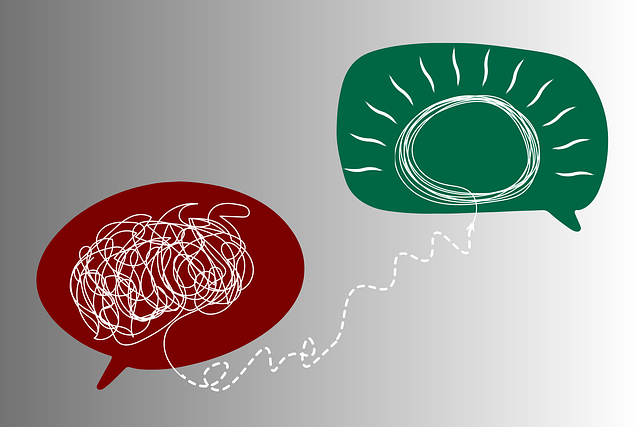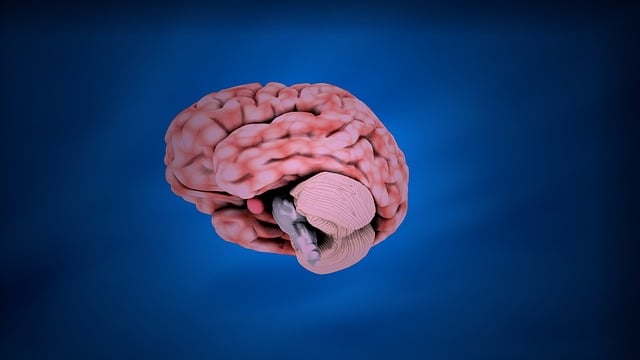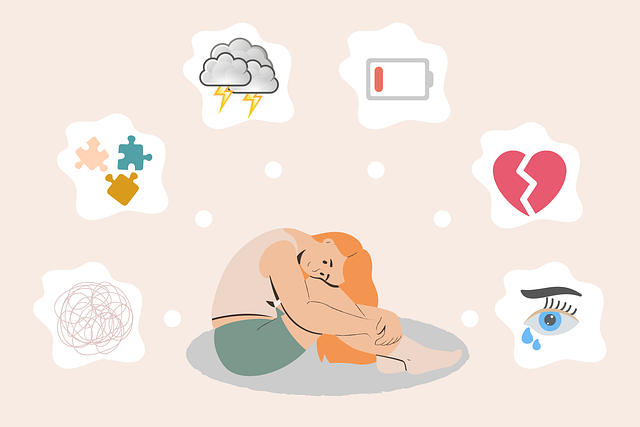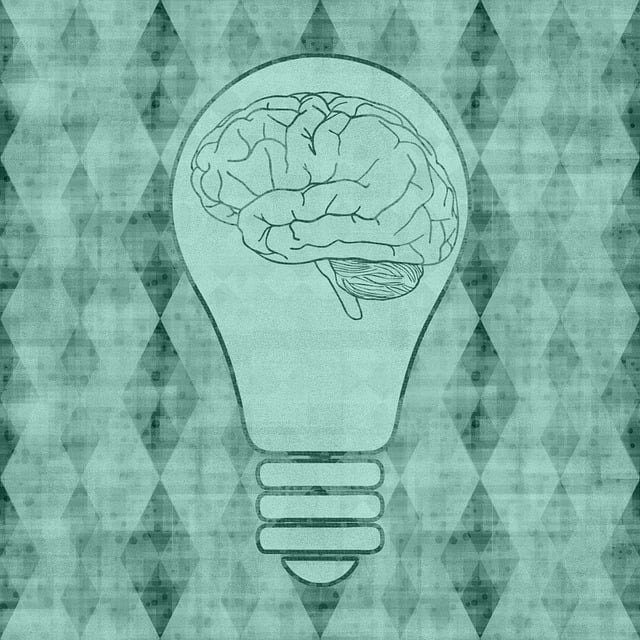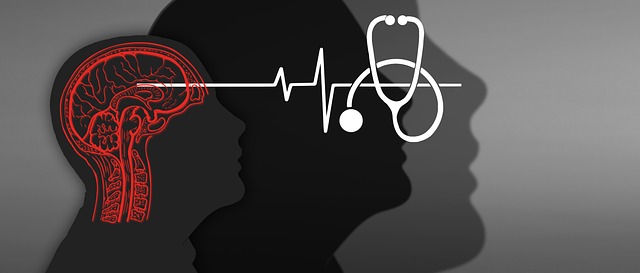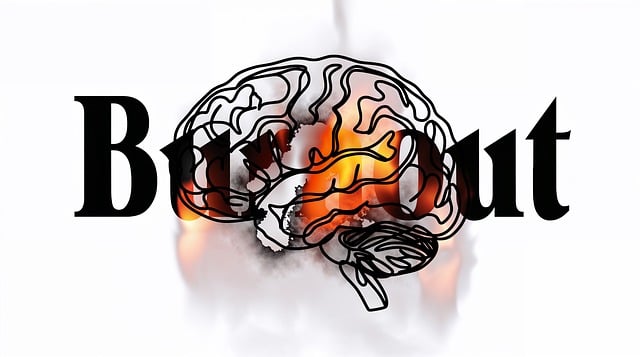Mental health literacy, enhanced through culturally sensitive approaches like those offered by Arvada Phobias Therapy, improves access to care and reduces stigma. A robust program combines theoretical knowledge with practical exercises, including interactive workshops on anxiety relief and real-life case studies, catering to diverse learning styles. These engaging sessions, centered around topics like stress management and phobias, foster open dialogue and community support. Regular risk assessments and structured evaluations measure success and inform continuous improvements, ensuring the program effectively addresses mental health challenges, including phobias, while fostering emotional well-being.
“Uncovering the power of education in mental health management begins with designing impactful programs. This article explores strategic program design, focusing on enhancing mental health literacy to combat challenges like Arvada phobias. We delve into key components, from understanding the current landscape and its impact to creating a structured framework.
Learn about effective engagement strategies and discover methods for delivering educational content. Moreover, we discuss measurement techniques to ensure success and facilitate continuous improvement in mental health education initiatives.”
- Understanding Mental Health Literacy and Its Impact
- Developing a Comprehensive Program Framework
- Strategies for Engaging and Educating Participants
- Measuring Success and Continuous Improvement
Understanding Mental Health Literacy and Its Impact

Mental health literacy refers to the knowledge and understanding of mental illnesses, their causes, symptoms, and available treatments. It empowers individuals to recognize when they or someone else might be struggling with a mental health issue, enabling early intervention and support-seeking behaviors. This is particularly crucial in communities like Arvada Phobias Therapy where increasing awareness can lead to improved access to care and reduced stigma. By fostering mental health literacy, individuals become better equipped to manage their own well-being, practice self-care through activities like Self-Awareness Exercises, and effectively navigate the complexities of seeking professional help.
Moreover, culturally sensitive approaches to mental healthcare, such as incorporating Cultural Sensitivity in Mental Healthcare Practice, play a significant role in enhancing literacy. Understanding diverse cultural perspectives on mental health and integrating these insights into therapeutic practices ensures that interventions are inclusive, respectful, and tailored to individual needs. This not only improves treatment outcomes but also encourages open dialogue about mental health issues across different communities, ultimately reducing barriers to care.
Developing a Comprehensive Program Framework

In designing a robust mental health education program, establishing a comprehensive framework is the cornerstone of success. This involves meticulously integrating various components to address diverse psychological needs effectively. A well-rounded program should encompass not just theoretical knowledge but also practical exercises tailored to enhance emotional intelligence and cultivate positive thinking. By incorporating interactive sessions, workshops on anxiety relief techniques, and real-life case studies, participants can develop skills to navigate mental health challenges.
The framework should be flexible enough to cater to different learning styles and individual needs. For instance, including both group discussions and one-on-one therapy sessions can accommodate those who prefer collective support versus private reflection. Incorporating evidence-based practices and leveraging resources like Arvada Phobias Therapy ensures the program’s effectiveness in managing specific mental health issues. This holistic approach fosters an environment conducive to personal growth and empowers individuals to take charge of their emotional well-being.
Strategies for Engaging and Educating Participants

Engaging participants in mental health education programs is key to ensuring effective learning and long-term behavioral changes. One successful strategy involves incorporating interactive workshops that foster open discussions, allowing individuals to share their experiences and insights. These sessions can center around specific topics like managing stress, anxiety, or phobias, such as those offered by Arvada Phobias Therapy, where participants learn practical tools and techniques from healthcare providers with expertise in these areas. By creating a safe and supportive environment, educators enable individuals to confront challenges openly, fostering a sense of community.
Additionally, integrating cultural competency training within the curriculum is vital for reaching diverse audiences. The Healthcare Provider Cultural Competency Training equips mental health professionals with the skills to understand and appreciate different cultural perspectives, ensuring that interventions are sensitive and tailored to individual needs. Combining this with Mind Over Matter principles can empower participants to take control of their mental well-being by understanding the mind-body connection. Moreover, regular risk assessments for mental health professionals should be implemented to identify potential triggers and ensure a safe learning space for all.
Measuring Success and Continuous Improvement

Measuring success and fostering continuous improvement are vital components of any effective mental health education program, especially when addressing complex issues like phobias in Arvada Phobias Therapy. By implementing structured evaluation methods, program designers can assess the impact and outcomes of the intervention. This involves collecting qualitative and quantitative data to gauge participants’ progress in managing their mental wellness. For instance, pre-and post-program assessments can track improvements in self-esteem, anxiety levels, and overall psychological resilience.
Regular feedback from participants is essential for refining the program. Incorporating compassion cultivation practices within the curriculum has shown promising results in enhancing emotional well-being. These practices encourage self-reflection and promote positive interactions, leading to better mental health outcomes. Continuous quality assurance ensures that the program stays aligned with its objectives, effectively addressing various aspects of mental wellness while meeting the unique needs of individuals seeking support for their phobias.
Mental health education programs, like those offered by Arvada Phobias Therapy, are instrumental in fostering well-being. By understanding the impact of mental health literacy and adopting a comprehensive framework, engaging participants through diverse strategies, and measuring success with continuous improvement, we can create impactful programs that significantly enhance community mental health.

